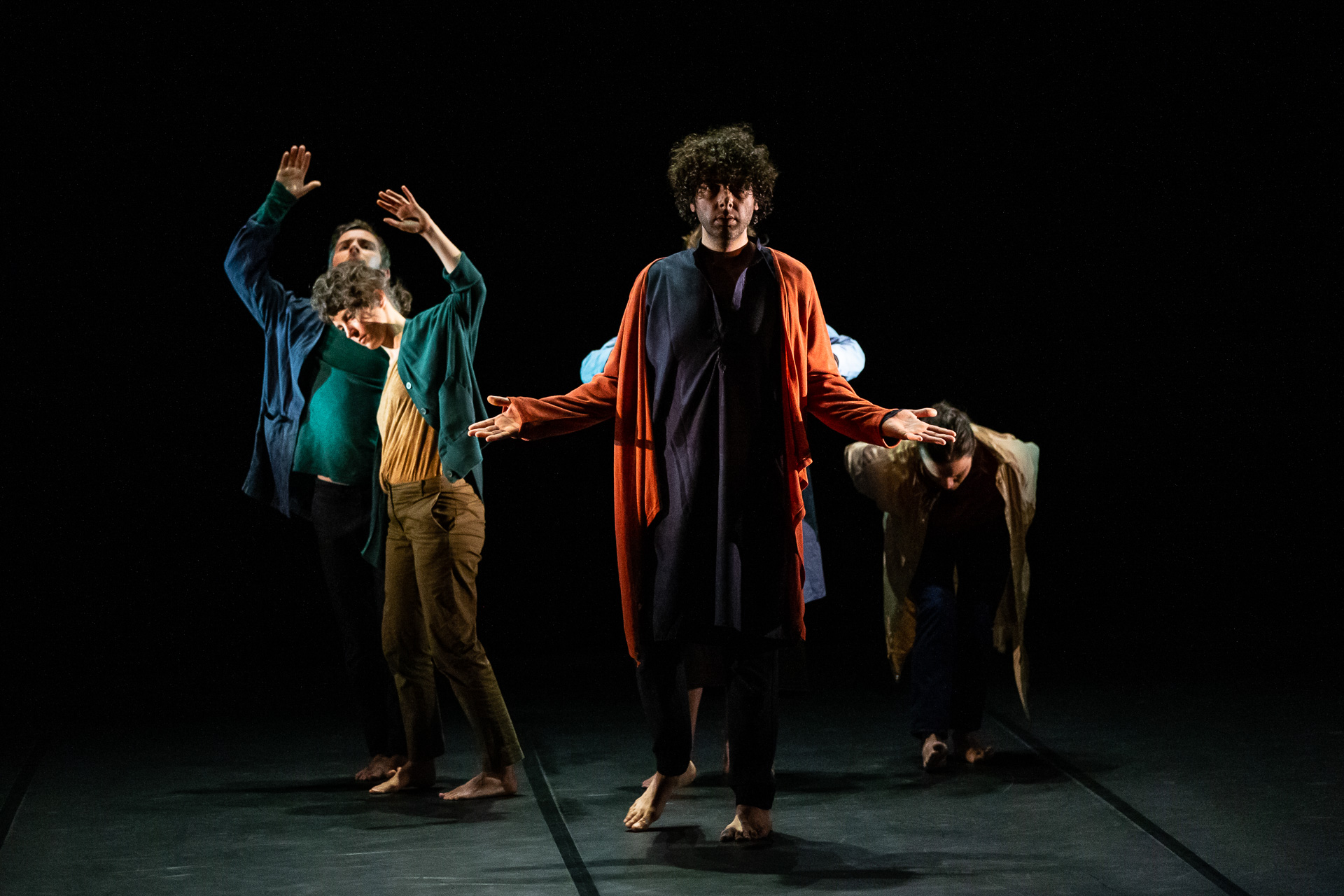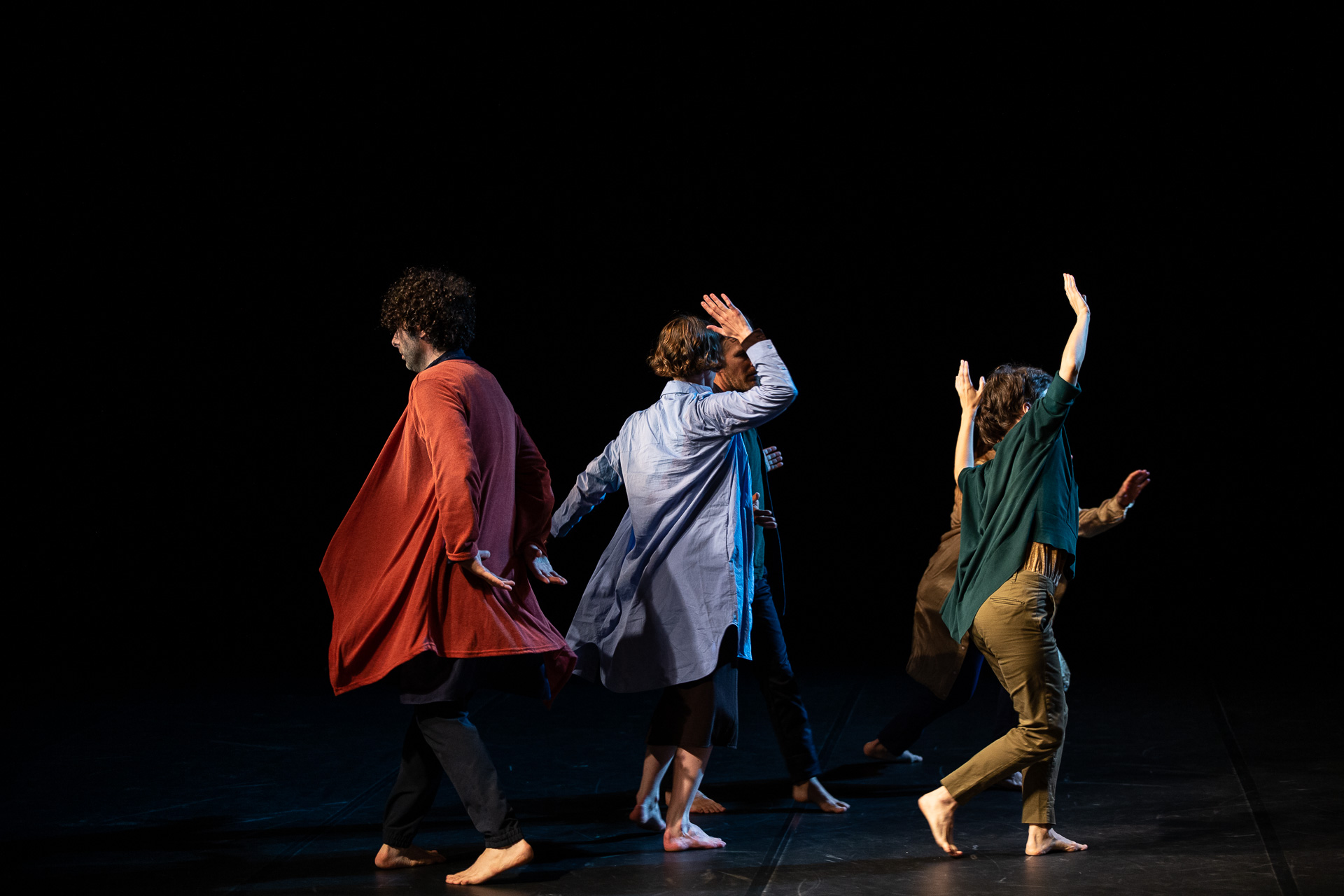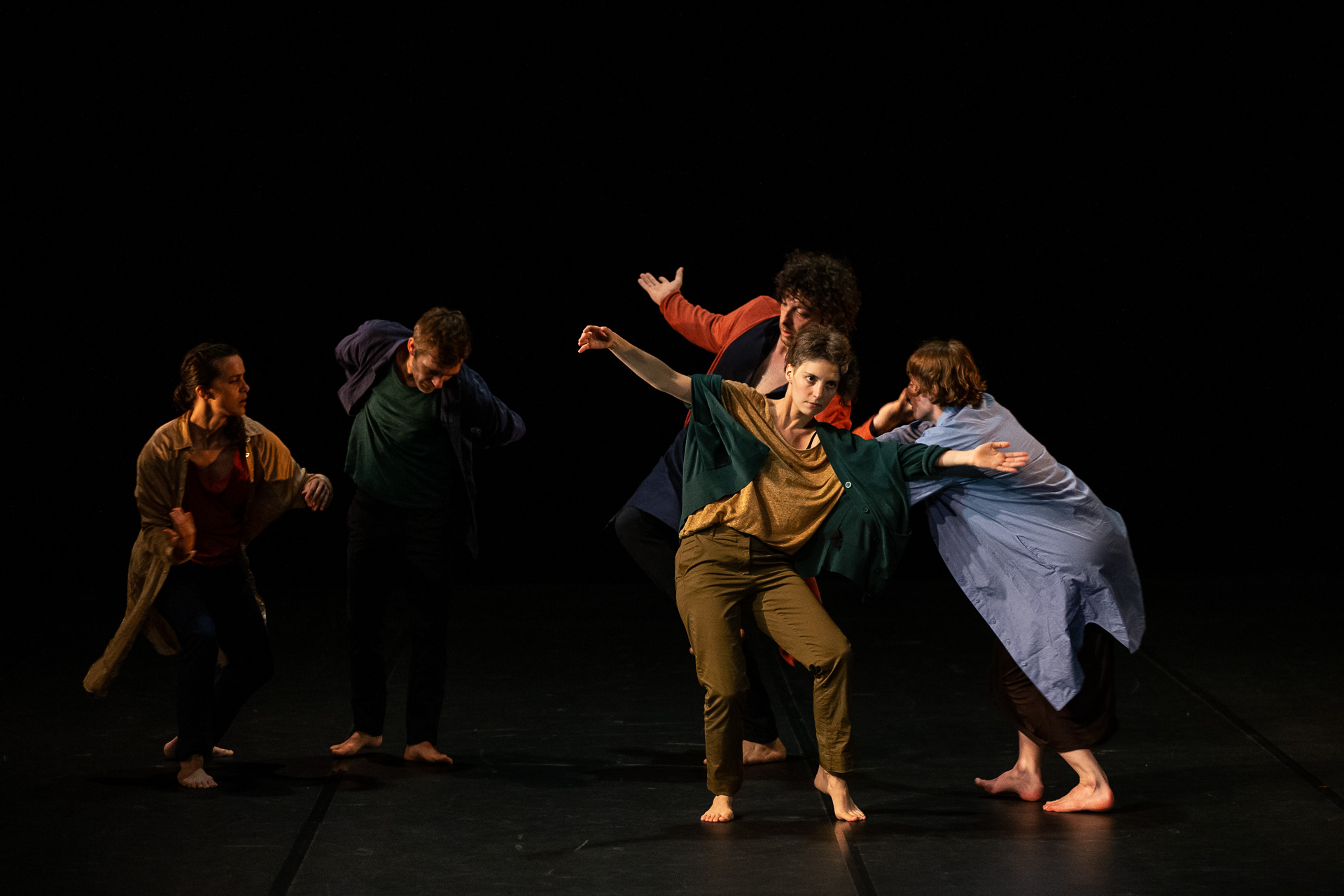Choreography : Mithkal Alzghair
Performers : Annamaria Ajmone, Mirte Bogaert, Judit Dömötör, Yannick Hugron, Samil Taskin
Sound designer : Shadi Khries
Lighting designers : Julien Bony et Julie Valette
Production management : Clémence Sormani
Projet co-produced by
Théâtre de la Ville – Paris avec la Fondation d’entreprise Hermès ; Théâtre Louis Aragon à Tremblay-en-France / Scène conventionnée d’intérêt national Art et Création – danse, dans le cadre du projet « Territoire(s) de la danse 2018 » ; Festival Montpellier danse 2019 ; Groupe Caisse des Dépôts ; Musée de la danse / CCN de Rennes et de Bretagne ; Théâtre d’Arles / Scène conventionnée d’intérêt national Art et Création
Funded by : DRAC Ile-de-France (aide au projet), Département de la Seine-Saint-Denis, Arab Fund for Arts and Culture (AFAC)
With the support of la Briqueterie / CDCN du Val-de-Marne
We are not going back explores the political and social reality that surrounds and affects us, threatening our human existence. From resistance to utopia, from struggle to submission, from hope to despair, five bodies will explore possibilities for another world on stage.
We live in a world that is divided into countries, nationalities, religions, skin colours and origins… We are separated by frontiers formed of walls, barbed wire and blockades, put up by the capitalist system to protect itself. The system enslaves people, uses them as its driving force and obliges them to live inside this closed system. Today, migrants, the people who are trying to reach these protected spaces, are used by governments as an excuse to increase political control of their citizens. As migrants travel to escape the political control of their bodies they are confronted with other forms of surveillance. All the talk about integration and the importance of diversity carry little weight in the face of the actions perpetrated every day towards them.
Every day, in the name of this supposed security, we submit our bodies to the control of gazes, weapons and machines. We offer up our bodies to inspection by the authorities. We expose our privacy in order to be allowed to continue on our way. When our bodies are forced to display themselves in this way, we are surrendering, we make gestures of submission so as not to expose ourselves to danger. Day after day, our bodies are shaped by a system of controls, norms and prohibitions. Our lives are now dependent on what governments choose to do with us, and yet we continue to live in a free and egalitarian utopia.
We are not going back bears witness to people’s everyday lives, to everything that impacts on our humanity and our existences. It is also a form of demonstration, struggle and protest against all the bodily ideologies that we accept and that threaten our integrity. Five dancers will bring to life on stage apparitions of the body in the face of this system of control, and the resulting images will be transformed in a utopian attempt at freedom. The dancers will adopt several forms, going from dancing bodies to everyday bodies, in a gestural and rhythmic performance that highlights this tension between educated corporeality and hoped for humanity. We are not going back examines the fragile boundaries between violence and caring for others, between submission and struggle, between conflict and harmony.
Mithkal Alzghair





